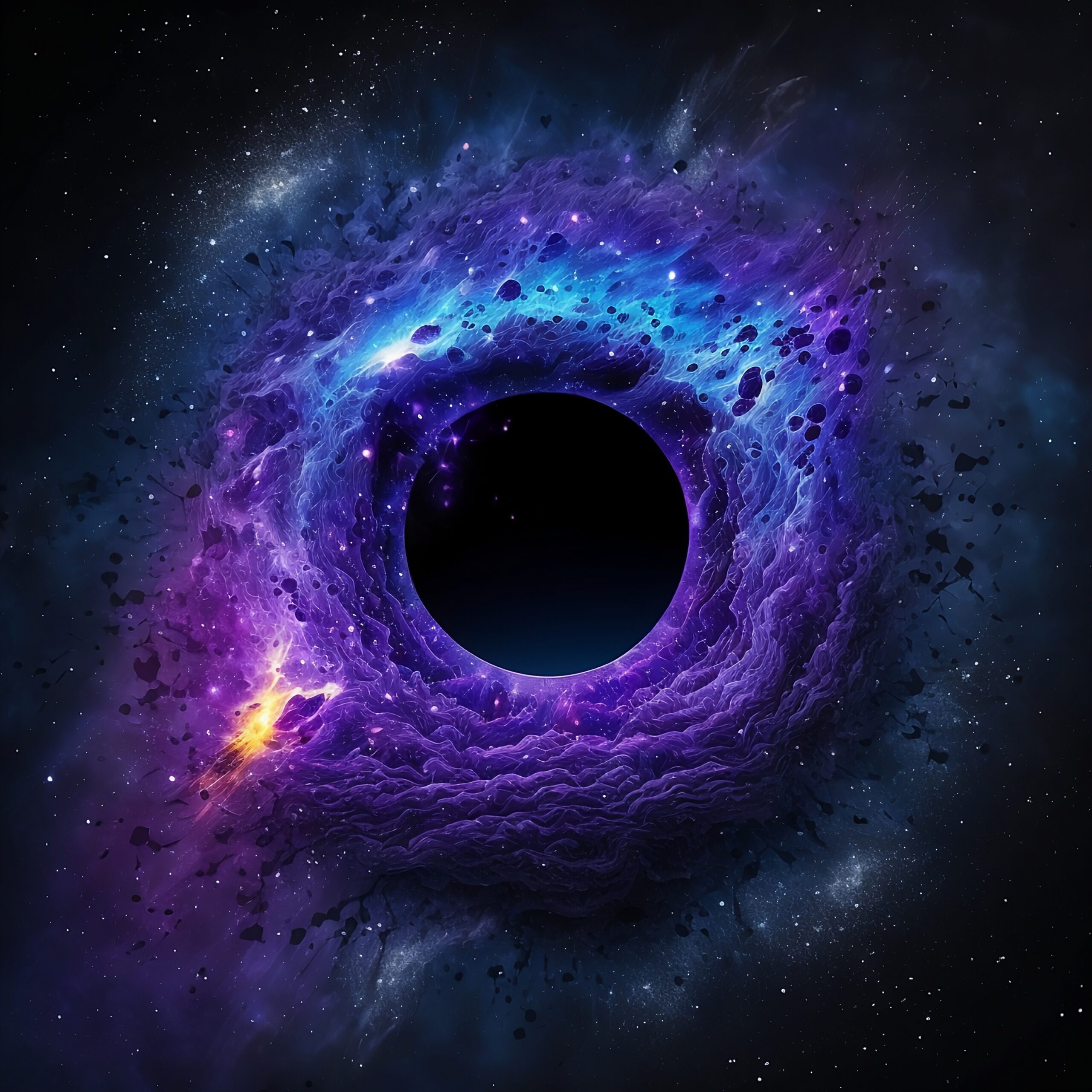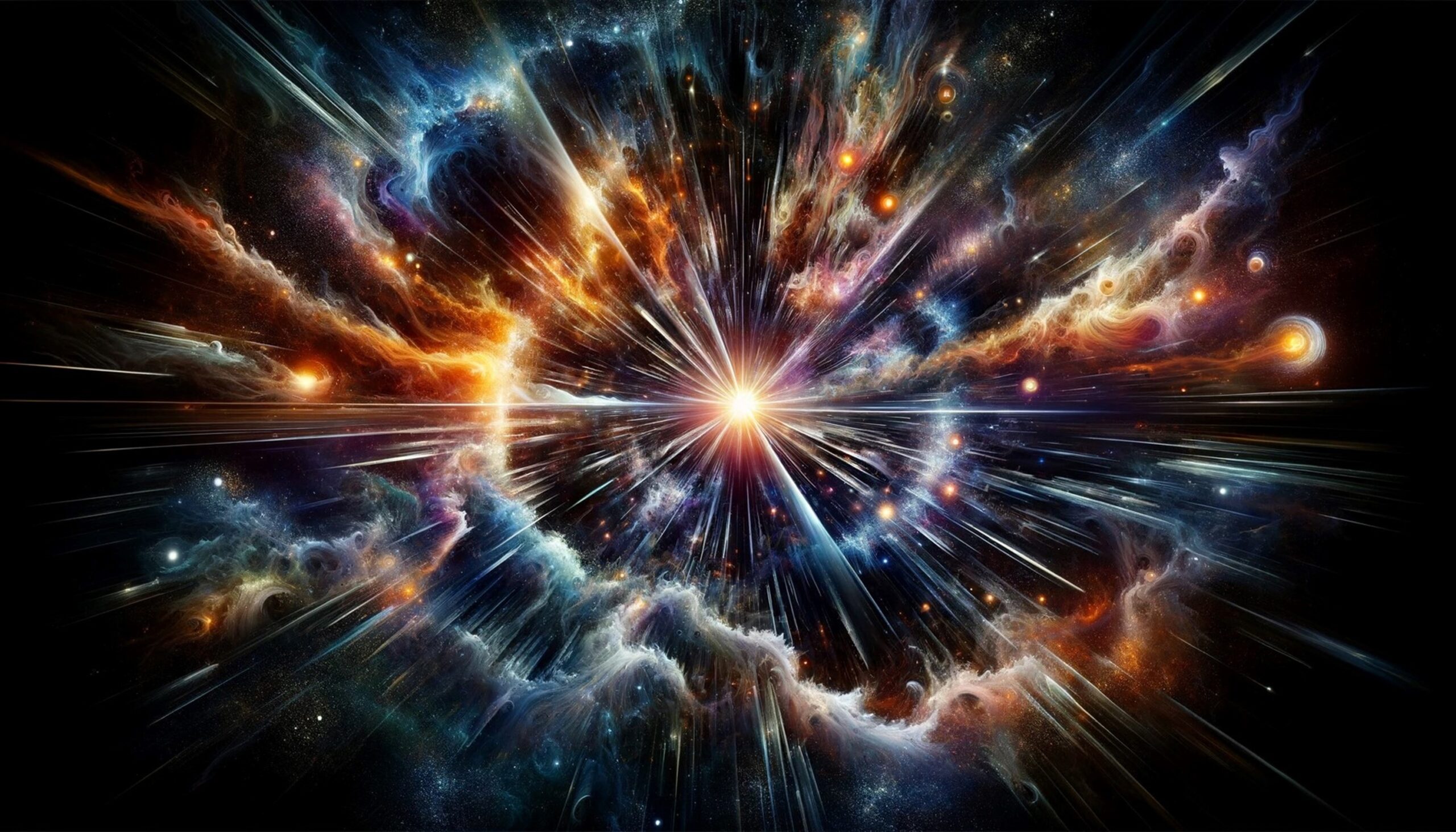Introduction
Could black holes be the key to time travel, or is this just a fantasy from science fiction?
Black holes have always fascinated both scientists and storytellers. They are mysterious forces in the universe, often seen as gateways to strange, impossible possibilities in movies and books. Whether in blockbuster films or serious scientific studies, black holes challenge our understanding of physics and spark curiosity about space and time.
This blog will explore the exciting link between black holes and time travel. We’ll look at the scientific ideas behind this concept and separate what’s real from imagined. Let’s uncover the facts—and the myths—about these cosmic mysteries.
What Are Black Holes? (A Quick Recap)
Black holes are areas in space where gravity is so strong that nothing can escape, not even light. They form when huge stars collapse under their weight, creating a super-dense point called a singularity. Around this point is the event horizon, the boundary where escape becomes impossible.
Here are the key features of black holes:
Event Horizon: The “point of no return.” Once something crosses it, it can’t escape.
Singularity: The very centre of the black hole, a point of infinite density where our understanding of physics breaks down.
Gravitational Pull: An incredibly strong force that bends spacetime, pulling in matter and energy.
Black holes are especially important when talking about time and space because they can slow down time and change how we think about the universe. They act like natural labs for studying time travel and the limits of space.
Time Dilation Near Black Holes: The Science
Einstein’s Theory of General Relativity changed how we understand gravity. It explains gravity not as a force, but as a bending of spacetime caused by massive objects. Black holes, with their huge mass packed into a tiny space, cause a huge warp in spacetime. This bending affects how time behaves nearby.
Time Dilation Explained
Time dilation is when time slows down for someone near a strong gravitational field, like close to a black hole, compared to someone farther away. The closer you get to the event horizon, the slower time moves for you compared to someone at a safe distance.
For example, in the movie Interstellar, the crew visits a planet near a supermassive black hole. One hour on the planet is like seven years for people farther away in space. This is based on real science: the stronger the gravity, the more time is affected.
Separating Fact from Fiction
While time dilation is real and can be measured, it doesn’t allow for “time travel” like we see in movies. People experiencing time dilation aren’t jumping into the future or past. They’re just moving through time more slowly compared to others in weaker gravitational fields. This effect shows how time, space, and gravity are all connected, but it doesn’t mean we can travel through time at will.
Speculative Theories: Black Holes as Time Machines
The idea of using black holes as time machines is an exciting thought that has inspired both scientific research and creative storytelling. Two main concepts often discussed are wormholes and rotating (Kerr) black holes.
Wormholes: Cosmic Shortcuts
A wormhole, also called an Einstein-Rosen Bridge, is a hypothetical tunnel that could connect two far-apart points in spacetime. In theory, this tunnel could allow for instant travel across great distances or even act as a link between different times.
The idea of wormholes comes from solutions to Einstein’s General Relativity equations. However, wormholes are purely theoretical, and there’s no evidence to prove they exist. Even if they do, keeping a wormhole stable would be a huge challenge. Scientists think “exotic matter” with negative energy might be needed to keep a wormhole open, but this kind of matter hasn’t been found yet.
Rotating (Kerr) Black Holes: A Door to the Past or Future?
A Kerr black hole is a type of black hole that spins because of the rotation of its original star. Some theories suggest that the extreme conditions near a rotating black hole could create closed timelike curves (CTCs), which are loops in spacetime that could, in theory, allow travel to the past or future.
Although this idea is interesting, it comes with many problems. The stability of these time loops is uncertain, and the powerful forces near the singularity could destroy anything trying to travel through them. Also, paradoxes like the “grandfather paradox” raise questions about whether time travel through black holes would even be possible.
Reality Check
While these theories are fascinating, they remain speculative. The huge energy needed, the possible instability of these concepts, and the lack of evidence make it unlikely that black holes could be used as time machines anytime soon—or ever. Still, these ideas help us learn more about the nature of spacetime and continue to inspire scientific exploration of the universe’s mysteries.
What Happens Beyond the Event Horizon?
The event horizon of a black hole is the point beyond which nothing—neither matter nor light—can escape. What happens inside this mysterious region is one of the biggest puzzles in modern physics. While there are some theories, the true nature of the inside of a black hole is still unknown.
Inside the Event Horizon
Once something crosses the event horizon, the black hole’s powerful gravity pulls everything towards the singularity, a point of infinite density where all the black hole’s mass is concentrated. According to General Relativity, the singularity is where spacetime itself breaks down, and the laws of physics stop working as we know them.
As objects get closer to the singularity, they undergo a process called spaghettification. Due to the huge difference in gravitational pull between the parts of the object closest to and farthest from the singularity, the object gets stretched into long, thin shapes—hence the name.
The Breakdown of Physics
One of the biggest challenges in understanding black holes is combining General Relativity, which explains the large-scale structure of spacetime, with quantum mechanics, which governs tiny particles. At the singularity, where density becomes infinite, these two theories clash, leaving us with gaps in our understanding.
Some ideas, like quantum gravity or string theory, suggest that singularities might not be points of infinite density. Instead, they might be regions where quantum effects change things, possibly avoiding the infinities predicted by classical physics. However, these ideas are still speculative because there’s no direct evidence to support them.
Possibilities Beyond the Horizon
Some scientists speculate that beyond the event horizon, there could be entire new universes or connections to other points in spacetime, perhaps through a wormhole. Others think black holes might store information in ways we don’t yet understand, which ties into the “black hole information paradox”—the question of whether information that falls into a black hole is truly lost forever.
Limits of Understanding
Since nothing can escape from beyond the event horizon, we can’t observe what’s inside directly. This makes the interior of a black hole one of the greatest mysteries of the universe. Advances in physics, such as a unified theory of quantum gravity, might one day help answer these questions. Until then, the nature of what lies beyond the event horizon remains a fascinating mystery, mixing science and imagination.
Philosophical Implications
The idea of time travel through black holes goes beyond science and into deep philosophical questions about causality, free will, and the nature of reality. While scientific theories offer some structure, the possibility of time travel sparks debates that challenge our understanding of time and existence.
Could We Change the Past or Future?
Time travel brings up the question of causality—how cause and effect work. If traveling to the past were possible, it could lead to paradoxes like the grandfather paradox. This paradox suggests that changing something in the past, like preventing your grandparents from meeting, could erase your existence. This creates a logical problem that both scientists and philosophers have long debated.
One possible solution is the Novikov self-consistency principle, which argues that any actions taken by a time traveler would be consistent with the timeline as it is. In other words, the past can’t be changed, because any action the traveler takes is already part of history. This idea keeps causality intact but means the past can’t be altered.
Multiverse and Parallel Timelines
Another way to avoid paradoxes is through the multiverse theory, which suggests there are many parallel universes. In this view, traveling to the past could create a new timeline that’s separate from the traveler’s original one. Actions in the past wouldn’t affect the traveler’s timeline, but instead, they would unfold in a different reality.
This idea of parallel timelines also raises questions about personal identity and choice. If alternate versions of ourselves exist in different timelines, how do our actions in one timeline affect those in another? Do they reflect the same core identity, or are they completely different?
The Nature of Time and Reality
Time travel through black holes forces us to reconsider how we think about time. Is time linear, like we usually experience it, or is it more like a dimension we can move through? If time can loop or branch into multiple possibilities, our understanding of reality might need to shift from a single, fixed path to a more flexible and dynamic view.
Ethical and Existential Questions
Time travel also brings up ethical questions. If we could influence the past or future, should we? What responsibility would a time traveler have to avoid causing harm or unexpected consequences? Additionally, the idea of a multiverse raises existential issues: If countless versions of “us” exist in different realities, what does it mean for the importance of our individual choices?
Conclusion
Black holes are some of the most intriguing objects in the universe, offering a unique look at how gravity, space, and time work together. We’ve explored how time dilation near black holes can slow down time due to their strong gravitational pull. We’ve also looked at exciting ideas like wormholes and rotating (Kerr) black holes, which hint at the possibility of shortcuts through spacetime or even time travel. However, the challenges—both practical and theoretical—are still huge, so these ideas remain speculative for now.
Although black holes may not be time travel gateways yet, they continue to expand our knowledge, acting as natural labs where we can explore the limits of physics and the secrets of the universe.
What do you think? Could time travel ever go from being a science fiction idea to a scientific reality? Share your thoughts and join the conversation about one of the most fascinating mysteries of the cosmos!
Share the knowledge with

